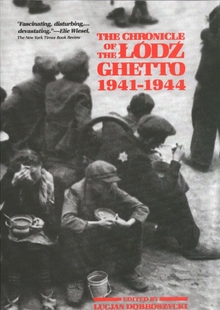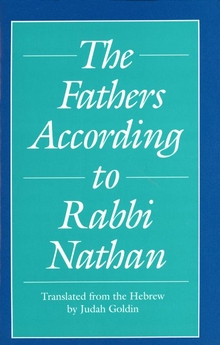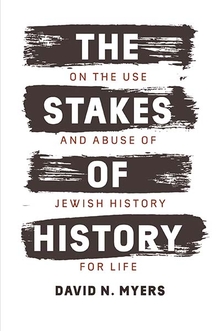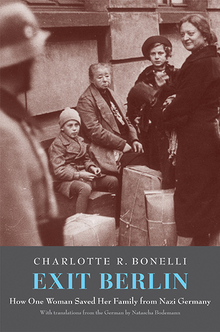The Chronicle of the Lodz Ghetto, 1941-1944
WARNING
You are viewing an older version of the Yalebooks website. Please visit out new website with more updated information and a better user experience: https://www.yalebooks.com
Lucjan Dobroszycki
A devastating, day-by-day record of life in the second-largest Jewish ghetto in Nazi Europe—a community that was reduced from 163,177 people in 1941 to 877 by 1944. Compiled by inhabitants of the ghetto and illustrated with more than seventy haunting photographs, the Chronicle is a document unparalleled among writings on the Holocaust.
"A remarkable piece of testimony. To read it is to pay the dead the small tribute of remembrance, and to be devastated by a picture of a particular and terrible hell."—Michiko Kakutani, The New York Times
"The Chronicle of the Lodz Ghetto tears at the mind and heart and leaves a dark and numbing rage in the center of the soul."—Chaim Potok, The Philadelphia Inquirer
"Fascinating, disturbing."—Elie Wiesel, The New York Times Book Review
"[Dobroszycki] has done a major service not only to historians and students of the Holocaust, but to all those, both Jews and non-Jews, who are interested in how a tyrannical regime can exploit, starve, and deceive tens of thousands of intelligent, articulate people in time of war."—Martin Gilbert, The New York Review of Books
"Sober yet unforgettably vivid."—S.S. Prawer, Times Literary Supplement
"A milestone in Holocaust studies. Its wealth of information and accuracy, and the systematic manner in which it was compiled, makes in an unequalled source on the history of the destruction of European Jewry."—Alexander Zvielli, The Jerusalem Post Magazine
"Well worth reading as a record of extremes of human experience."—Majorie Meehan, M.D., American Journal of Psychiatry
"Dr. Dobroszycki is a survivor of the ghetto. He is also a trained historian with a sophisticated, finely honed mind. No one knows as much about these records as he does. No one understands them better."—Raul Hilberg
Lucjan Dobroszycki is a historian at YIVO Institute for Jewish Research and Yeshiva University.
"A remarkable piece of testimony. To read it is to pay the dead the small tribute of remembrance, and to be devastated by a picture of a particular and terrible hell."—Michiko Kakutani, The New York Times
"The Chronicle of the Lodz Ghetto tears at the mind and heart and leaves a dark and numbing rage in the center of the soul."—Chaim Potok, The Philadelphia Inquirer
"Fascinating, disturbing."—Elie Wiesel, The New York Times Book Review
"[Dobroszycki] has done a major service not only to historians and students of the Holocaust, but to all those, both Jews and non-Jews, who are interested in how a tyrannical regime can exploit, starve, and deceive tens of thousands of intelligent, articulate people in time of war."—Martin Gilbert, The New York Review of Books
"Sober yet unforgettably vivid."—S.S. Prawer, Times Literary Supplement
"A milestone in Holocaust studies. Its wealth of information and accuracy, and the systematic manner in which it was compiled, makes in an unequalled source on the history of the destruction of European Jewry."—Alexander Zvielli, The Jerusalem Post Magazine
"Well worth reading as a record of extremes of human experience."—Majorie Meehan, M.D., American Journal of Psychiatry
"Dr. Dobroszycki is a survivor of the ghetto. He is also a trained historian with a sophisticated, finely honed mind. No one knows as much about these records as he does. No one understands them better."—Raul Hilberg
Lucjan Dobroszycki is a historian at YIVO Institute for Jewish Research and Yeshiva University.
"A powerful document of the horrors of daily ghetto life. The physical and psychological tensions of a constrained existence are quietly but persistently recorded." —Booklist
"Provides an exhaustive victims'-eye view of the Final Solution, both consoling and deeply chilling in the sense of day-to-day normalcy it conveys." —Jack Schnedler, Chicago Sun-Times
"An incredibly moving document that is loyal to the chroniclers' Jewish faith in a justice that will ultimately triumph. The Chronicle conveys in the words of those who lived it an outrage that is never to be forgiven or forgotten." —Irving Abrahmson, Chicago Tribune
"The publication of this work makes available in English a primary source of first-rate importance documenting the history of the Lodz ghetto.... Strongly recommended for college and university libraries." —Choice
"A milestone in Holocaust studies. Its wealth of information and accuracy, and the systematic manner in which it was compiled, makes it an unequalled source on the history of the destruction of European Jewry." —Alexander Zvielli, The Jerusalem Post Magazine
"Affords a painfully vivid account of the depths to which man's inhumanity to man can sink....This chronicle remains as a permanent record of a black page in human history." —John Barkham Reviews
"One of the most remarkable Holocaust publications of recent years.... Dobroszycki has supplied an excellent and indispensable introduction and extensive explanations and footnotes. A unique publication, highly recommended."—Library Journal
"The raw material this book offers will be studied and dissected for decades." —Rita Kashner, Newsday
"[Dobroszycki] has done a major service not only to historians and students of the Holocaust, but to all those, both Jews and non-Jews, who are interested in how a tyrannical regime can exploit, starve, and deceive tens of thousands of intelligent, articulate people in time of war." —Martin Gilbert, New York Review of Books
"A remarkable piece of testimony. To read it is to pay the dead the small tribute of remembrance, and to be devastated by a picture of a particular and terrible hell."—Michiko Kakutani, New York Times
"Fascinating, disturbing, depressing, The Chronicle of the Lodz Ghetto, 1941-1944 reveals facts that have up till now remained obscure in the context of events already well known and poses painful questions to which I dare not supply answers....A native of Lodz and a survivor of its ghetto, Lucjan Dobroszycki, the eminent researcher at the YIVO Institute for Jewish Research in New York, speaks, and lets the chroniclers speak, with the authority of someone who was there. His introduction is well documented, his presentation of the texts is clearly focused, and his footnotes are scrupulously researched. Except when dealing with the murderers themselves, he neither justifies nor condemns; he simply turns the pages....In the devastating chronicles of the Lodz ghetto we read and read about men and women and children who died and died and, in a way, did not stop dying; it is of their judgment that the world today ought to be afraid."—Elie Wiesel, New York Times Book Review
"A heartbreaking day-to-day history, written on the scene, of the Nazi extermination of the Jews of the second largest Polish ghetto."—And Bear in Mind section of New York Times Book Review
"The Chronicle of the Lodz Ghetto tears at the mind and heart and leaves a dark and numbing rage in the center of the soul." —Chaim Potok, The Philadelphia Inquirer
"[An] important historical document, appearing in English for the first time....Written as events were unfolding by a group of scholars and journalists who lived in constant fear of the Germans, the entries are cautious in language, almost bland at times, and nonjudgmental. They are also lucid and precise. Rarely has understatement been more eloquent ('The kitchens are still giving out potato peels to those with proper documents'). Dobroszycki's extensive introduction provides the broader context that was unknown to the chroniclers, including the development of Nazi policy with regards to the Lodz ghetto. A significant addition to Holocaust literature." —Publishers Weekly
"Lest any of us think that we have read the definitive works of Holocaust literature, along comes this remarkable book to dispel any such notion....It is must reading for all, and an excellent source book for scholars." —Ruth Segal Bernards, Sh'ma
"An eerie and horrific scene told in terse entries, like a nightmare dreamed in pieces." —Stefan Kanfer, Time
"Sober yet unforgettably vivid." —S.S. Prawer, Times Literary Supplement
"Remarkable. . . . One of the major documents of Hitler's Final Solution." —Virginia Quarterly Review
"The Chronicle of the Lodz Ghetto gives a uniquely detailed and devastatingly accurate account of wartime life in a Polish ghetto. It is surely an invaluable historical source. The editor has contributed an excellent introduction, but after that he has let the chroniclers speak for themselves with few explanatory notes being necessary. It is a story which must be told. One can learn much from this book—but it is a distinctly somber and painful account." —Richard M. Watt, Washington Post Book World
"Its broad perspective, accurate unemotional reporting, systematic compilation, and wealth of routine facts give it great historical and heartbreaking significance."—Esther Elman Unger, The Jewish Voice
"This singular chronicle, both for what it says—and what must be read between the lines—is an invaluable addition to the ever-growing collection of Holocaust literature."—Bernard Baskin, Canadian Jewish News
"Readers who are new to the subject will find an astonishing view from the inside of a closed and doomed ghetto. Those who are familiar with the details will find it impossible to forget the day-by-day record, kept by writers who knew too little and wrote about even less than they knew."—Sylvia Rothchild, Jewish Books in Review, 1984-1985
"Well worth reading as a record of extremes of human experience."—Marjorie Meehan, M.D., American Journal of Psychiatry
"This, without a doubt, is the finest work on the Ghetto of Lodz during the Nazi occupation."—Albert A. Goldman, Jewish Chronicle
"No short review can do adequate justice to this superb but harrowing book. Through absorbing detail and a vivid imagery enhanced by its very detachment, it stimulates so many thoughts about human behaviour under condition which no human should ever face."—Tony Sharp, International Affairs
"Dobroszycki had provided scholars and others interested in the Holocaust of the European Jewish community with a superbly edited and moving history of one small part of that event." —David A. Langbart, The Maryland Historian
"A document unparalleled among writings on the Holocaust."—Jewish Combatants of WWII
"An unparalleled set of historical documents about the Holocaust."—Abraham J. Peck, Simon Wiesenthal Center Annual, Volume 4
"This large and impressive volume has aroused great interest and rightly so since it is a document of great importance....One of the most important primary sources of the Holocaust period that has come down to us....A document which removes the term Holocaust from its abstract setting and gives us a convincing portrayal of reality."—Yisrael Gutman, Studies in Contemporary Jewry
Winner of the 1984 Kenneth B. Smilen Literary Award in the category of General Nonfiction from the Jewish Museum
Selected as a Notable Book of 1984 by the American Library Association
Chosen as the 1984 Outstanding Book in the humanities by the Professional/Scholarly Publishing Division of the Association of American Publishers
Selected as "Editor’s Choice" by Time
Nominated for a 1985 National Jewish Book Award in the category of Holocaust literature
ISBN: 9780300039245
Publication Date: September 10, 1987
Publication Date: September 10, 1987
565 pages, 7 x 10
74 b/w illus.
74 b/w illus.






